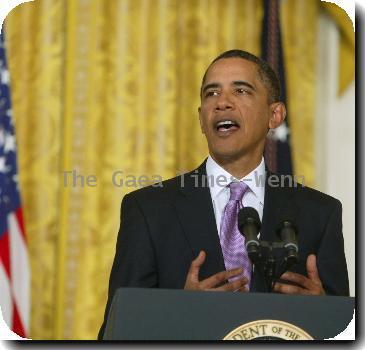Kagan papers emerge as top Democrat raises doubts about Supreme Court nominee’s abortion views
By Julie Hirschfeld Davis, APTuesday, May 18, 2010
Kagan papers emerge amid questions on abortion
WASHINGTON — A senior House Democrat said Tuesday that senators should fully question Supreme Court nominee Elena Kagan to make sure she supports abortion rights, in light of her previous backing for limiting late-term abortions.
In a letter to the Senate Judiciary Committee, Rep. Louise Slaughter of New York said she views as “troubling” a 1997 memo Kagan wrote urging then-President Bill Clinton to back a ban on all abortions of viable fetuses except when the physical health of the mother was at risk.
Slaughter, the co-chair of the House Pro-Choice Caucus, wrote that the lack of a judicial record for Kagan, who has never been a judge, makes it imperative that the committee scrutinize her abortion views.
Kagan, President Barack Obama’s choice to succeed retiring Justice John Paul Stevens, was a domestic policy adviser to Clinton when she wrote the memo Slaughter cited. That memo is part of a trove of documents, most of them unreleased, at the Clinton presidential library in Little Rock, Ark.
In the 1997 memo, Kagan urged Clinton to support a ban on late-term abortions, a political compromise that put the administration at odds with abortion rights groups. Kagan and her boss, Bruce Reed, told the president that he should support the ban because it might help him avoid even stricter language from a Republican-led Congress. Clinton supported it, but the proposal ultimately failed and Clinton vetoed a stricter Republican ban.
Slaughter raised her concerns as the White House delivered to Capitol Hill Kagan’s lengthy response to a Judiciary Committee questionnaire, including cartons of new documents from her past that could shed light on her views and legal approach.
Her handwritten notes from a May 2009 speech offer some insight into how Kagan approached her job as solicitor general — and a potential answer to GOP critics who have suggested she would be a Supreme Court rubber stamp for Obama’s policies.
“My client is not the president — it is the United States — and while the president sometimes speaks on behalf of this client, Congress does as well, where there’s a statute at issue,” Kagan wrote.
The papers also reveal that Obama’s team first contacted Kagan about serving on the Supreme Court more than a month before Stevens announced his intent to retire. Vice President Joe Biden was arranging his first job interview with Kagan for the post two days before Stevens went public with his plans.
The documents offer an extraordinarily detailed picture of the former Harvard Law School dean, from articles she wrote as an undergraduate for Princeton University’s campus newspaper to her finances.
But lawmakers in both parties are focusing instead on the Clinton-era papers as the key to revealing what kind of justice Kagan would be. Some 160,000 pages from her time as a domestic policy adviser and associate White House counsel are expected to be released by the Clinton library in the coming weeks.
Without those documents, lawmakers say they have few clues about what Kagan’s judicial style would be, given her limited courtroom experience. Kagan, 50, stepped aside Monday from her job as solicitor general, where she represented the Obama administration before the Supreme Court.
Sen. John Cornyn, R-Texas, said the Judiciary Committee shouldn’t hold hearings on Kagan’s confirmation until senators have a chance to read all the papers.
“What she told me is that 160,000 pages that we’re going to see will reveal a lot of information … about her views, about her attitudes and her activities while serving at the White House” in the 1990s, Cornyn said after a closed-door meeting with Kagan.
Kagan returned to Capitol Hill on Tuesday for courtesy calls with senators. She already has met with more than a fifth of the Senate — most of them members of the Judiciary panel — and appears for now to be on a smooth road to confirmation.
She told senators in the questionnaire that if confirmed as a justice, she would stay out of any case she worked on as the government’s top lawyer. So far that would mean stepping aside from eight of the 18 cases the court has agreed to hear in the term that begins in October. They include a claim of job discrimination from an Army reservist, an immigration dispute, a criminal sentencing case and lawsuits against vaccine makers.
In the papers, Kagan reported her net worth at $1.76 million, a nearly 75 percent increase over what it was when she was nominated to be solicitor general in January 2009.
Two factors appear to account for the bulk of the increase. The stock market has recovered from its dramatic dip in 2008 and Kagan sold her residence in Cambridge, Mass., shedding $1.2 million in mortgages and pocketing some cash from the sale. Her assets are held in cash, money market accounts, mutual funds and retirement savings.
Some glimmers of her views came from her college days.
Her Princeton University thesis on the downfall of the socialist movement in New York City a century ago is something more than a history lesson. The acknowledgments reveal a personal motivation for the project that has sparked debate in the blogosphere.
“I would like to thank my brother Marc, whose involvement in radical causes led me to explore the history of American radicalism in the hope of clarifying my own political ideas,” Kagan writes in the acknowledgments.
And her writings in The Daily Princetonian reveal some of her own liberal political leanings. She wrote a signed column in November 1980, days after Ronald Reagan won the presidency and Republicans captured the Senate, in which she lamented “a general turn to the right and profound disorganization on the left.”
She described four GOP victors who knocked off Democratic incumbents as “anonymous, but Moral Majority-backed” candidates and “avengers of ‘innocent life’ and the B-1 bomber.” Those Republicans included a future vice president, Dan Quayle, and a member of the Judiciary panel, Sen. Charles Grassley of Iowa, who voted against Kagan’s confirmation as solicitor general last year and could be expected to oppose her again.
Associated Press writers Mark Sherman, Laurie Kellman and Ann Sanner contributed to this report.
Tags: Barack Obama, Bill Clinton, Higher Education, Judicial Appointments And Nominations, North America, United States, Washington









